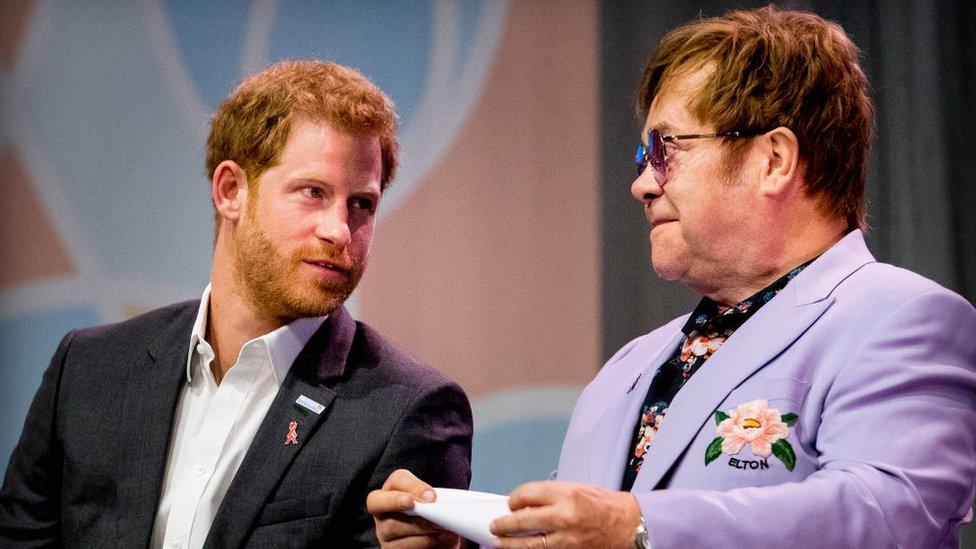Prince Harry privacy case: Lawyer refers to 'compelling new evidence'
- Published
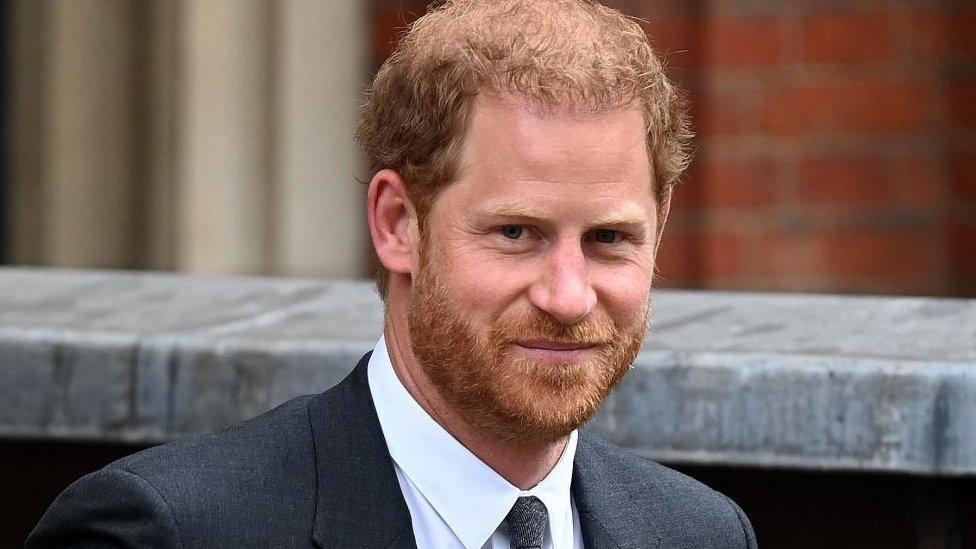
Prince Harry departs the High Court in London
Private investigators have provided new and "compelling" evidence of illegal work for the Mail newspapers, the Duke of Sussex's barrister told a court.
The privacy case centres on allegations of widespread illegality commissioned by journalists in the 1990s and 2000s.
Associated Newspapers denies the allegations and says the seven claimants - including Prince Harry, Sir Elton John and Baroness Doreen Lawrence - have left it too long to sue.
Their barrister rejected the argument.
Privacy claims are supposed to be brought within six years but David Sherborne said his clients had been unable to prove their allegations until the private investigators revealed their activities, triggering the current legal action.
Giving one example, he said the actor Liz Hurley had not known her phone was being tapped until a private investigator made a witness statement detailing what had happened in 2021.
"That's the trigger. That's when the scales fall from her eyes," he told London's High Court.
Associated Newspapers is trying to get the case thrown out, claiming the claimants had run out of time.
Prince Harry was again in court on Thursday for the final submissions in the legal battle over whether allegations of phone tapping, hacking and blagging of personal information should go to trial.
His fellow claimants also include Sir Elton's husband David Furnish, actor Sadie Frost and former Liberal Democrat MP Sir Simon Hughes.
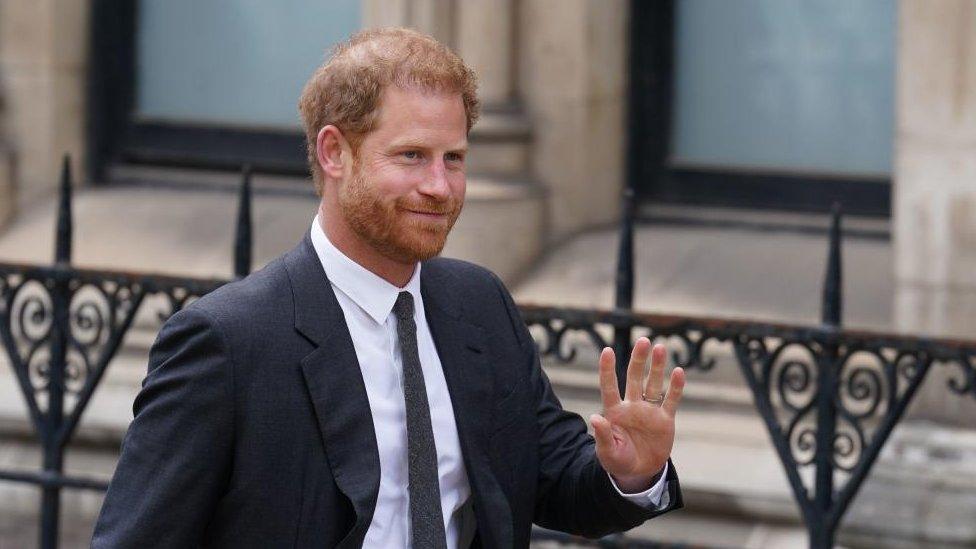
The Duke of Sussex waves as he arrives at the Royal Courts Of Justice
In her witness statement, Hurley says she found out she had been targeted by an investigator called Gavin Burrows who was looking for information about her and her friends Sir Elton and Mr Furnish.
Mr Burrows, she was told, employed a British Telecom engineer to put a phone tap on her landline and hide a cassette recorder in the junction box in the street.
Mr Burrows gave a statement in 2021 revealing a wide range of unlawful techniques he used for gathering information on behalf of newspapers.
Baroness Lawrence, who has campaigned for justice following the murder of her son Stephen in 1993, also attended court. She has claimed she only found out in recent years that she was targeted in the late 1990s.
The court heard she first discovered she was a target for the newspapers after Mr Burrows and another private investigator Jonathan Rees had begun discussing their work for journalists, including some working on the Mail titles.
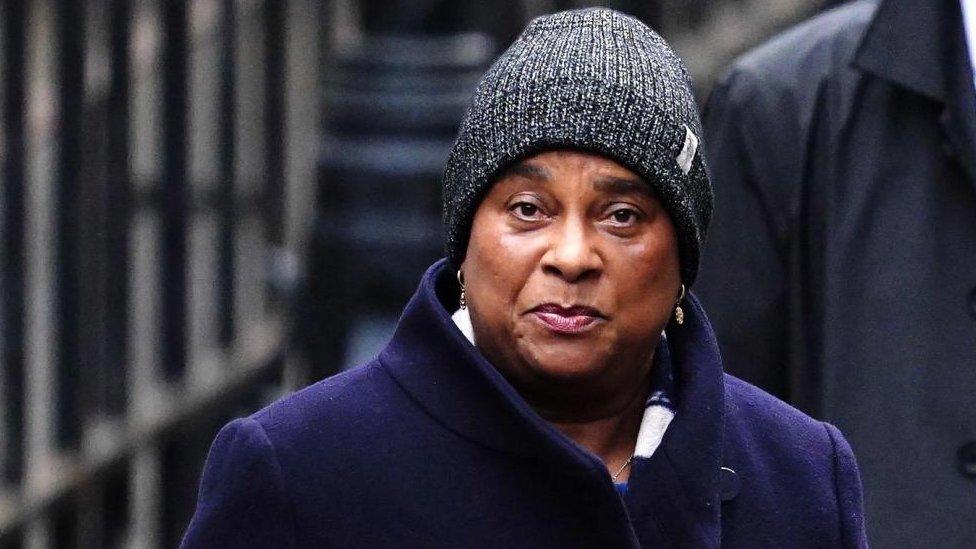
Baroness Doreen Lawrence was also at court earlier this week
The Daily Mail had been running a supportive campaign for Stephen's killers to be prosecuted, but Baroness Lawrence says in her witness statement: "I believe now that the Mail were just playing a game with me."
It has been suggested the newspaper was trying to protect its "exclusive" relationship with the Lawrence family by tapping Baroness Lawrence's phones and putting her under surveillance.
She blamed the police for leaking details about the case she now believes were obtained using illegal methods by private investigators.
The claimants' barrister Mr Sherborne told the court: "We say that's nothing short of gaslighting Baroness Lawrence."
But he said this was new information which supported his argument that the judge should allow the case to go ahead, despite the six-year limit for claims.
"How could she have known she had a worthwhile claim in relation to that unlawful act before then?" he said.
Despite that, the 2021 witness statement made by private investigator Mr Burrows has been discredited by lawyers for Associated Newspapers because this year Mr Burrows made a second statement denying being involved in illegal work for the Mail titles.
When making the first statement, Mr Burrows appears to have had a friendly relationship with journalists and campaigners who have been investigating press intrusion, but more recently has fallen out with them, according to reports.
On Wednesday the change in stance by Mr Burrows led the judge, Mr Justice Nicklin, to say that Prince Harry and the other claimants "may have adjust their expectation" of the value of the alleged confession.
Associated Newspapers has strongly denied being involved in any illegal information gathering. It described the original claims made by Mr Burrows as "untrue, inflammatory and deeply offensive".
As the four-day hearing finished, Mr Justice Nicklin promised to produce his judgement "as soon as possible".
Related topics
- Published27 March 2023
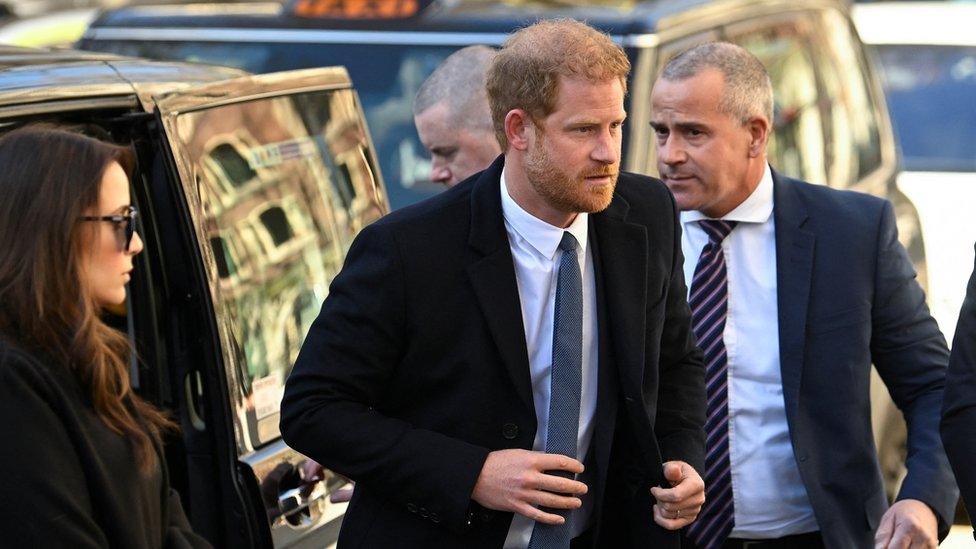
- Published27 March 2023
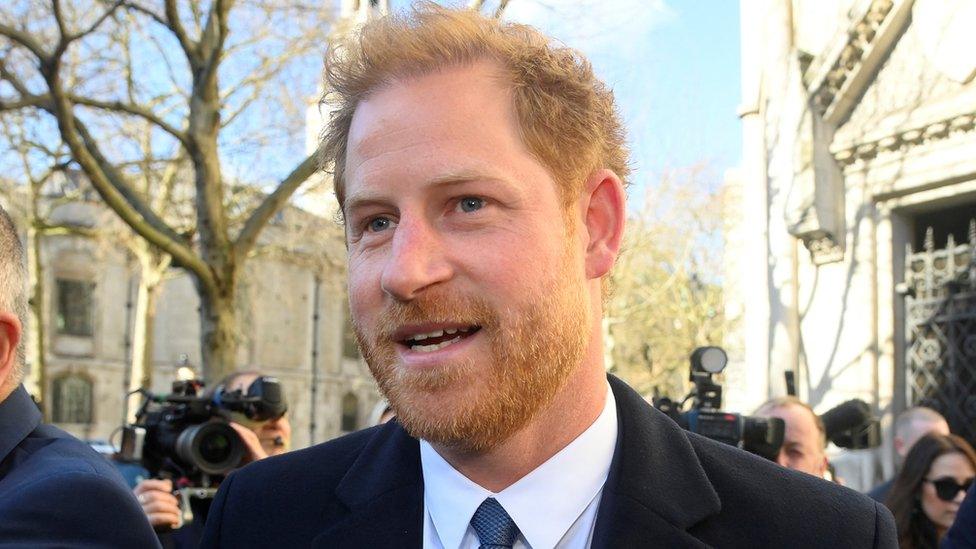
- Published6 October 2022
